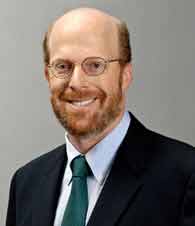|
Executive Interviews: Interview with Daniel Levinthal on Learning Organizations
July 2008
-
By Dr. Nagendra V Chowdary
 Daniel Levinthal
Daniel Levinthal Reginald H Jones Professor of Corporate Strategy at the Wharton School, University of Pennsylvania, Current Chair of the Management Department at Wharton. 
Many academicians and researchers
(Peter Senge in Fifth Discipline,
Marlene Fiol and Marjorie Lyles in
Organizational Learning, George P
Hubber in Organizational Learning:
The Contributing Processes and the
Literatures, Barbara Levitt and James
G March in Organizational Learning,
Chris Argyris in Double Loop Learning
in Organizations, Ray Stata in Organizational
Learning: The Key to
Management Innovation, and David
Garvin in Building a Learning Organization
etc.) have defined what a learning
organization is.What according to
you are learning organizations? How
do you define them?
|
|
A learning organization makes sense
of its experiences in ways that inform
future actions. As a result, it is simultaneously
rooted in its past and forward
looking. We can break down
this broad conception further into
three basic components. First, a learning
organization is proactively engaged
in experimentation as well as
conscious of the "natural" experiments
of business activity by which I
mean changes in policies thatmay not
have been designed or changes in its
competitive context. Second, the organization
must be sensitive to feedback
and, indeed be creative in creating
new feedback measures. Coarse,
overall outcomes such as profit and
loss are not going to be very informative
about the wisdom of particular
initiatives. A critical element in an effective
learning organization is the
creation of a rich and variegated set of
measures. Finally, knowledge must
be tied to action: What are the implications
of the feedback that surfaced?
What does this imply about the
organization's ongoing policies and
how they might be modified? Does it
suggest additional experiments that
might be explored?
-
What are learning organizations'
characteristics? Are there any good
examples for learning organizations?
A learning organization requires a certain
modesty and openness of mind.
To be truly committed to learning, an
organization must accept the notion
that there are no best ways of doing
things, but rather simply ways of doing
things that are yet to be shown to
be inferior. At the same time, effective
learning requires leveraging the
organization's current wisdom and
understanding of preferable ways of
operating and competing. Learning
cannot simply be about the discovery
of novelty, but using the insights that
have been derived from past experience
to drive superior performance
while going forward. Toyota is perhaps
the quintessential learning organization.
Most widely known is its
deep commitment to the notion of
continual improvement and in particular
how those policies have
driven a long record of remarkable
progress in operational performance
in manufacturing and supply chain
management. However, Toyota appears
equally committed to the notion
of continuous improvement at the
more strategic level. The firm has
been heralded for its production development
efforts lead by its "heavyweight"
project leaders. However, in
response to a sense that cost and complexity
of its product portfolio were
with, the firm cast off this longtime
organizational structure and formed
larger, more integrated product development
operations. -
What benefits can companies expect
to derive out of being learning organizations?
Why should organizations
aspire to be learning organizations?
A learning organization is not committed
to knowledge for its own sake
but for what learning can do for nearterm
and long term performance outcomes.
Management problems are
complex, there is no reason to assume
that a given organization has "figured
it out". To borrow from my work on
adaptation on business landscapes,
firms are generally operating at "local
peaks", a set of mutually consistent
practices and firm strategies but are
very unlikely to be positioned at "global
peak" in the space of business
practices and strategies. This discrepancy
motivates the ongoing search for
superior practices and positions. Secondly,
the world changes. Even if the
organization has worked out a set of
practices and strategies that yield outstanding
performance in some prior
period, changes in technology, regulations,
and market opportunities will
present new learning opportunities
and challenges. Thus, there is both
the static problemof identifying superior
solutions to a complex problem
and the dynamic challenge of
responding to changing problem context.
1.
Learning Organizations Case Study
2. ICMR
Case Collection
3.
Case Study Volumes
|
